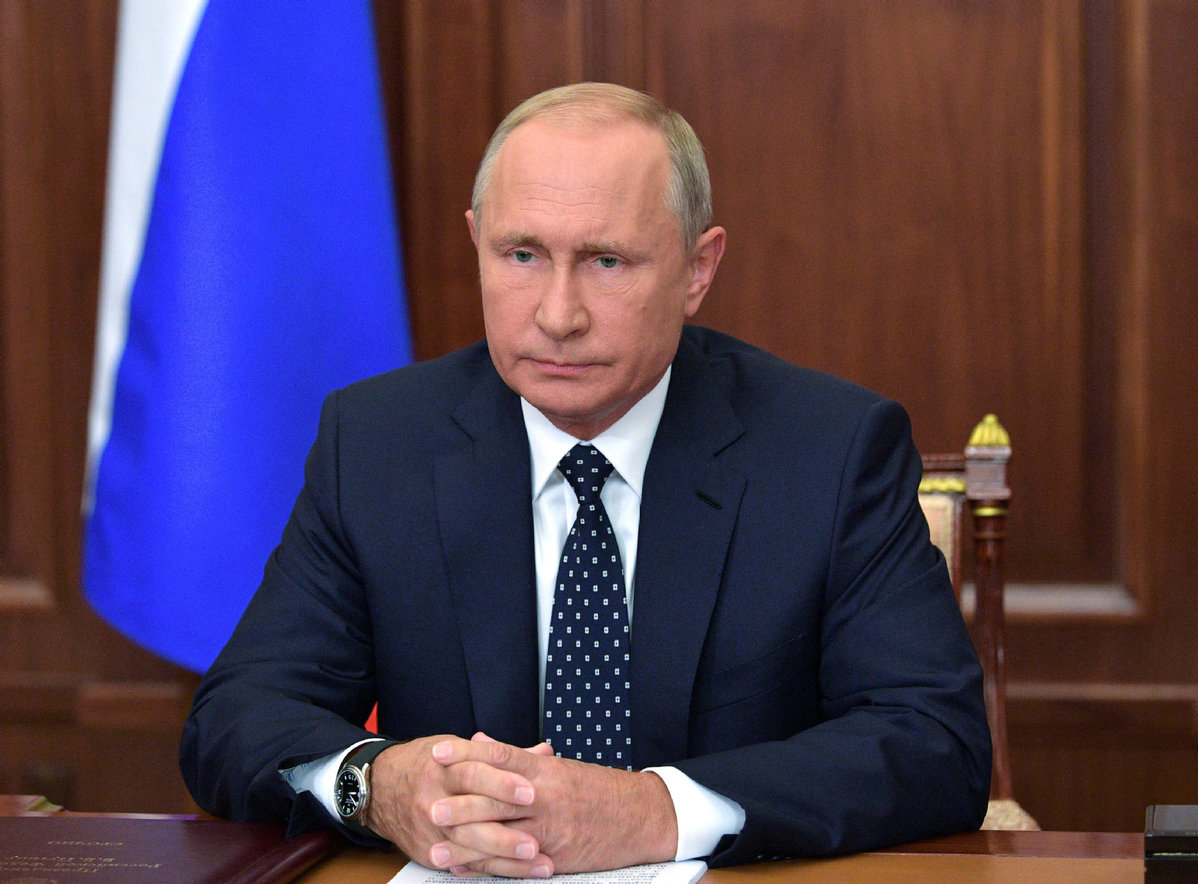Putin proposes to soften Russian pension reform
Xinhua | Updated: 2018-08-29 18:18

MOSCOW - Russian President Vladimir Putin said on Wednesday that there was no other way than to proceed with the controversial pension reform, but proposed a series of measures to cushion its effect.
"It is really impossible to postpone it further. It would be irresponsible and could lead to serious consequences in the economy and social sphere and most negatively affect the fate of millions of people," Putin said in a televised address to the nation.
The Russian State Duma, or the lower house of the federal assembly, passed in the first reading a bill gradually extending the age of retirement to 65 from 60 for men and to 63 from 55 for women from 2019, which triggered protests throughout Russia.
In his address, Putin proposed to lower the retirement age for women to 60, three years earlier than what has been suggested in the bill.
"The retirement age for women should not increase more than for men. Therefore, I consider it necessary to reduce the proposed increase in the retirement age for women to five from eight years proposed by the bill," Putin said.
A mother of three should be allowed to retire three years earlier, a mother of four -- four years earlier. Women with five or more children should be able to retire at 50, he added.
Putin also proposed to keep the retirement age for men set in the bill at 65.
Citizens, who under the old legislation were to retire in the next two years, should enjoy a "special privilege" of getting their pension six months before the new retirement age, he said.
The president also proposed to introduce administrative or even criminal responsibility for employers dismissing workers of pre-retirement age and refusing to employ citizens because of their age.
Other measures proposed by Putin included raising the unemployment benefit for people of pre-retirement age and granting them the right to enjoy various tax breaks pensioners are entitled to.
The pension reform bill awaits two more readings in the Duma, and has to be approved by the upper house before being signed into law by Putin.
























